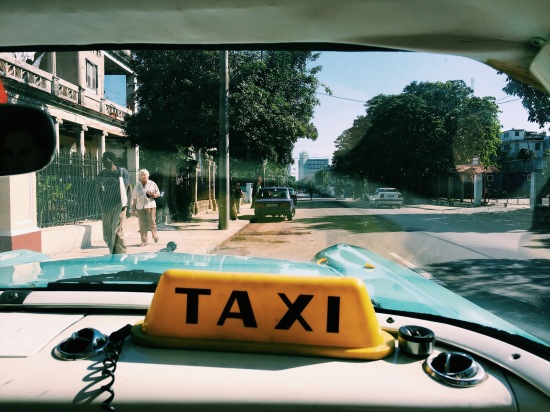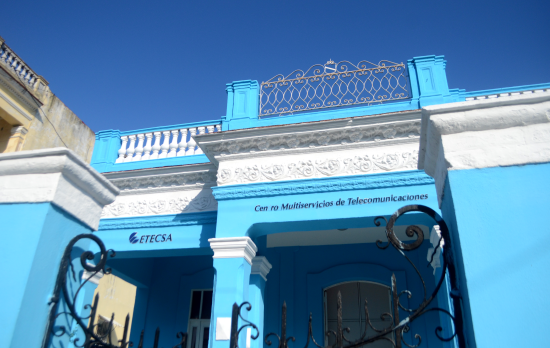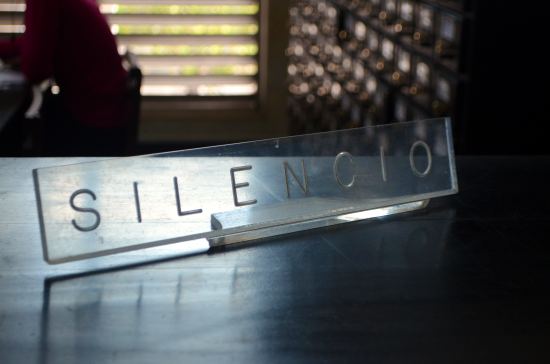Traveling to Cuba is daunting, both because of its misconceptions and its all-too-real (yet frustrating or baffling) truths. This guide to some of the more logistical aspects of Cuba may help.
1. Pay attention to prices in CUC vs. CUP.
Cuba has two currencies: the peso convertible (CUC) and the moneda nacional (CUP). As a tourist, you’ll be using the CUC, which has a roughly 1:1 exchange rate with the US Dollar. The CUP has an exchange rate of roughly 24 CUP:1 USD, which means that prices can be significantly cheaper when using CUP. You technically can obtain CUP (although you’ll have to change your dollars into CUC first, then change CUC to CUP), but it’s highly frowned upon for foreigners to make transactions in CUP. Tourist dollars are a huge source of income in Havana, so keep in mind that while 1 dollar might be pocket change for you, it scales up by 24 for your taxi driver, waitress, housekeeping staff, random street vendor, etc. Keeping the status quo and paying in CUC helps to ensure service staff earn a living wage.
Note: When you arrive at the airport in Havana, you have to exchange cash at the cadeca (currency exchange). ATMs are extremely rare and credit cards are almost never accepted in Havana, so ensure that you’ve brought enough cash with you to cover your expenses for the duration of your trip.

2. Prepare for hygiene.
Bathrooms can be (and often are) questionable in Cuba. Many are not self-flushing and require you to pour water into the bowl, toilet paper is sparse and sometimes requires a fee, and hoping for functioning sinks (with soap) is a gamble. Bring a travel-sized hand sanitizer plus either a roll of toilet paper or a pack of Kleenex everywhere you go!
Note: I stayed in a casa particular, which is similar to a bed & breakfast, and I didn’t take a single warm shower the whole time. If you’re in a hotel this might not be your reality, but it’s worth preparing to be chilly.

3. Internet access is a challenge.
If you think Cuba is a good place for a working vacation, think again. Accessing the internet is a process here: first, you visit an ETECSA, including standing in line for 5-10 minutes just to enter the building. Once inside, you talk to a teller who will sell you up to three 1-hour internet cards at 1.50 CUC (roughly $1.50 USD) each. Then, you sit in a public park or the lobby of a hotel, log in with the information on the internet card, and your time starts ticking. Luckily you can log in and out so your hour can span multiple sessions, but browsing speeds are slow. Prioritize your most important emails or social media posts ahead of time so you can be efficient once online. (If you’re a Snapchat user, don’t even bother–it doesn’t work on Cuban Wi-Fi.)
That said, Cuba is a great place for an internet detox. I spent just one hour online during my 9 day trip, and it was a wonderful way to realize how casual scrolling can be unimportant, mindless, and time-consuming. The first few days I loved being inaccessible, but by the end of the trip I would’ve liked to have an additional hour to catch up on emails and share a photo or two on Instagram. Regardless, it’s a great challenge to break your habitual reliance on the internet, and two hours in 9 days would be exponentially smaller than the time I usually spend browsing.
Note: If you’re looking to purchase a SIM card, calling card (they still use pay phones here), or anything else telecommunications-y, the ETECSA is also the place.

4. Be careful along the malecón.
The area is plenty safe otherwise, but certain parts of the path along the ocean don’t have rocks to break the waves and water splashes over the edge. Best case scenario, you happen to walk by when the waves are moving out rather than in. Worst case scenario? You get drenched, your camera is ruined, and you slip on the smooth walkway and get injured.
Note: These parts are obvious enough. If the path in front of you seems at all wet, consider (carefully) walking for that portion on the street. Pay attention to the conditions ahead of you to see if it’s a splash zone, and you’ll be just fine.
5. Eating vegetarian is hard.
In a land of ubiquitous pork and beef, eating vegetarian can be tricky. Pescetarians can likely survive on shrimp and fish while in Cuba, but true vegetarians may want to bring along a jar of peanut butter or protein bars to supplement their meals.
Note: Some people (meat eaters or otherwise) also find Cuban food repetitive and bland so they pack hot sauce for their trip to jazz it up a bit. I didn’t do this, but I definitely understand the appeal after consuming a few meals of greasy pork chops with plain rice.
6. You might get scammed in Necropolis.
…or other places! Necropolis is the huge cemetery in the Vedado neighborhood of Havana, and it is absolutely worth a visit. The grounds are stunning and simultaneously resemble a Hollywood set and an actual city, plus you can see unique graves that range from truly historical to seriously modern.
I love exploring cemeteries, especially when I travel, because you can tell a lot about a culture from how they handle death. But Necropolis comes with a risk: you may be approached by someone offering to guide you around the graveyard for a (relatively high) fee.
I went to Necropolis with my friend Jenna, and suddenly a man came up and tried to talk to her in Spanish. She shrugged, so I came to assist, and he told us a story about a local architect who made pyramid-shaped buildings so they buried him in a pyramid-shaped tomb. He walked us over to the grave, and I thanked him for showing us. Then he started showing us CUP coins (they’re frankly much more interesting than the CUC ones), and asked if we’d like to take them as souvenirs, adding that we could trade CUC for them. Remember, of course, that 1 CUP is worth less than 5 cents, while 1 CUC equals 1 dollar. I quickly became skeptical, so when he offered his (expensive) services as a tour guide I turned him down and he walked away.
As I was translating to Jenna everything that had just occurred, the “tour guide” came back to us. He started raving about how dangerous Necropolis is–how somebody might steal my camera and how an American got attacked right where we were standing about a week ago–and how he could protect us from these things. This seemed even more suspicious to me (would he have been the one to rob/attack us?), so we remained firm in our refusal, thanked him again for showing us the pyramid tomb, and walked away.
Note: This guy could’ve been a legit tour guide, and perhaps his knowledge would’ve made Necropolis even cooler of an experience, but it all seemed too fishy. As with all potential scams, use your judgement.
7. A bit of Spanish will go a long way.
Part of the reason I wanted to visit Cuba was to use my Spanish skills, and I loved being able to get a feel of the culture by reading street signs, information in museums, and talking to locals. A lot of people in Havana–at least in the touristy areas–speak a bit of English, but getting a few key Spanish phrases under your belt can be helpful to bridge the gap for making purchases, ordering food, and asking for directions. If you can study the basics ahead of time, it’ll definitely pay off during your trip.
Note: Even if you speak Spanish, many locals don’t immediately open up when asked about Cuban politics or lifestyles. They’re much more likely to chat about deeper topics if you can do so in their language, but they might be taken aback if you immediately start asking about Castro and avoid conversation entirely.












Really useful read! As a snow-bum, I’ve been working on plans to make it out to Chile – I know very little about South America, but apparently their slopes are divine (according to the few people I know who’ve been, at any rate).
LikeLiked by 1 person
My sister studied abroad in Chile and they have beautiful countrysides there! She doesn’t ski/snowboard so can’t offer advice there but I’m sure your trip will be wonderful.
LikeLiked by 1 person